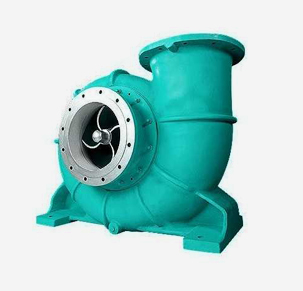English
- Afrikaans
- Albanian
- Amharic
- Arabic
- Armenian
- Azerbaijani
- Basque
- Belarusian
- Bengali
- Bosnian
- Bulgarian
- Catalan
- Cebuano
- Corsican
- Croatian
- Czech
- Danish
- Dutch
- English
- Esperanto
- Estonian
- Finnish
- French
- Frisian
- Galician
- Georgian
- German
- Greek
- Gujarati
- Haitian Creole
- hausa
- hawaiian
- Hebrew
- Hindi
- Miao
- Hungarian
- Icelandic
- igbo
- Indonesian
- irish
- Italian
- Japanese
- Javanese
- Kannada
- kazakh
- Khmer
- Rwandese
- Korean
- Kurdish
- Kyrgyz
- Lao
- Latin
- Latvian
- Lithuanian
- Luxembourgish
- Macedonian
- Malgashi
- Malay
- Malayalam
- Maltese
- Maori
- Marathi
- Mongolian
- Myanmar
- Nepali
- Norwegian
- Norwegian
- Occitan
- Pashto
- Persian
- Polish
- Portuguese
- Punjabi
- Romanian
- Russian
- Samoan
- Scottish Gaelic
- Serbian
- Sesotho
- Shona
- Sindhi
- Sinhala
- Slovak
- Slovenian
- Somali
- Spanish
- Sundanese
- Swahili
- Swedish
- Tagalog
- Tajik
- Tamil
- Tatar
- Telugu
- Thai
- Turkish
- Turkmen
- Ukrainian
- Urdu
- Uighur
- Uzbek
- Vietnamese
- Welsh
- Bantu
- Yiddish
- Yoruba
- Zulu
Telephone: +86 13120555503
Email: frank@cypump.com
Jul . 31, 2024 12:25 Back to list
Exploring the Importance and Functionality of Sewage Effluent Pump Systems in Wastewater Management
Sewage Effluent Pumps Essential Components in Wastewater Management
In the realm of wastewater management, sewage effluent pumps play a pivotal role in ensuring that treated sewage is efficiently transferred from treatment facilities to its final destination, which often includes water bodies or municipal sewer systems. As urbanization accelerates and the need for effective waste management escalates, understanding the importance and functionality of these pumps becomes essential.
Sewage effluent pumps are specifically designed to handle the discharge of fluid waste, which includes not just sewage but also stormwater and industrial effluents. Unlike standard water pumps, sewage pumps are engineered to manage materials with varying densities and compositions, necessitating robust construction and advanced technology to avoid blockages and ensure smooth operation.
One of the primary advantages of using sewage effluent pumps is their ability to handle both liquid and solid waste
. Many sewage effluent pumps are built with a macerator or grinder that shreds large particles, preventing clogs and ensuring that the wastewater can be transported through smaller pipes and challenges without issues. This is particularly important in residential areas where the plumbing systems might be more delicate, as well as in industrial applications where the waste may include fibrous or solid elements.The operation of a sewage effluent pump is typically automated. These pumps are often equipped with float switches that detect water levels, activating the pump when the water reaches a predetermined height. This automation not only enhances efficiency but also reduces the need for manual intervention, making the system safer and more reliable. Many modern pumps also incorporate advanced monitoring systems that provide real-time data on performance, allowing for proactive maintenance and minimizing the risk of breakdowns during critical periods.
sewage effluent pumps

In addition to their functionality, the selection of a sewage effluent pump is crucial for environmental sustainability. Efficient pumps can significantly reduce energy consumption, thereby decreasing the carbon footprint of wastewater treatment facilities. Furthermore, by ensuring that treated water is effectively transported to its destination, these pumps help prevent pollutants from contaminating local waterways, thereby protecting ecosystem health.
While the importance of sewage effluent pumps cannot be overstated, it is equally vital to recognize the challenges they face. One significant issue is wear and tear due to the abrasive materials often found in sewage. Regular maintenance and timely replacement of parts are necessary to prolong the lifespan of pumps and prevent downtime. Additionally, the energy consumption of these pumps can be substantial, prompting a push for more energy-efficient models as part of broader efforts in sustainable waste management.
Investment in advanced pump technologies is also on the rise, including the use of smart technology and IoT (Internet of Things) to enhance monitoring, efficiency, and integration with other wastewater management systems. These innovations pave the way for smarter cities, where wastewater systems can be actively managed and optimized based on real-time data.
In conclusion, sewage effluent pumps are an indispensable component of modern wastewater management systems. Their ability to efficiently transport treated sewage, prevent clogs, and adapt to varying waste compositions makes them crucial for protecting public health and the environment. As we move towards more sustainable practices, the continued development and adoption of advanced sewage effluent pumping technologies will play a significant role in achieving cleaner waterways and enhancing the overall efficiency of wastewater management solutions. Proper understanding, maintenance, and innovation in these systems are vital for ensuring the resilience of our infrastructures in the face of growing urban challenges.
-
ISG Series Vertical Pipeline Pump - Chi Yuan Pumps Co., LTD.|Advanced Hydraulic Design&Energy-Efficient Solutions
NewsJul.30,2025
-
ISG Series Vertical Pipeline Pump - Chi Yuan Pumps Co., LTD.
NewsJul.30,2025
-
ISG Series Vertical Pipeline Pump - Chi Yuan Pumps Co., LTD.|energy-efficient fluid handling&industrial durability
NewsJul.30,2025
-
ISG Series Vertical Pipeline Pump - Chi Yuan Pumps | Advanced Engineering&Industrial Efficiency
NewsJul.30,2025
-
ISG Series Pipeline Pump - Chi Yuan Pumps | High Efficiency, Energy Saving
NewsJul.30,2025
-
ISG Series Vertical Pipeline Pump-Chi Yuan Pumps|High Efficiency&Reliable Performance
NewsJul.29,2025










